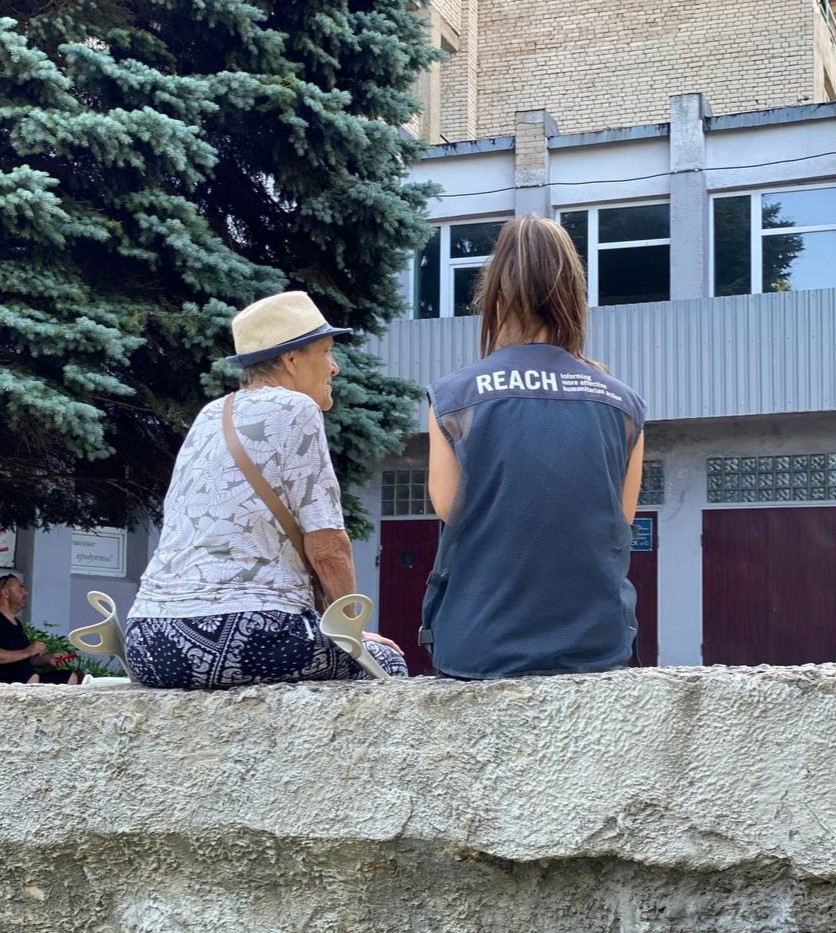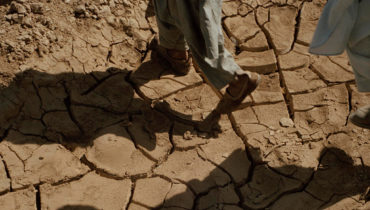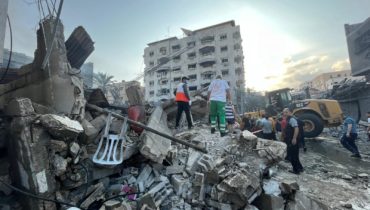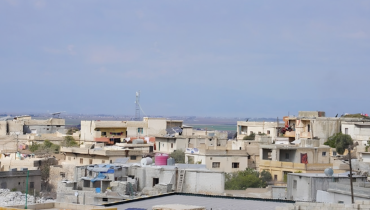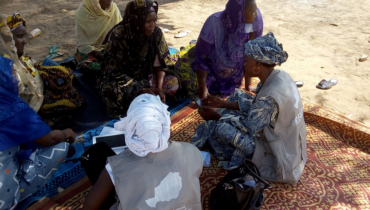Accountability & Inclusion Thread
10 October 2023
Launch Statement
Promoting a people-centred aid system: IMPACT’s commitment to producing community-driven evidence for humanitarian decision making
In recent years, there has been growing momentum around putting people and communities at the centre of humanitarian action, packaged under a series of Accountability to Affected People (AAP) principles and commitments. This push for stronger accountability mechanisms and participatory approaches to aid action stemmed from serious concerns around the behaviour of humanitarian actors, including abuse and corruption, as well as perceptions of paternalism, neocolonialism, and generally ineffective aid interventions that were designed without the input of communities.
At the same time, more efforts and resources have been put into enabling evidence-based and data-driven humanitarian response planning, with inter-agency initiatives like the Joint Inter-Sectoral Analysis Framework (JIAF) seeking to deliver on a system-wide approach for integrating data and analysis into annual planning exercises. The aim here has been to ensure decisions around resource allocation and the prioritisation of particular crises, population groups, or geographic areas are taken based on where the evidence shows needs are greatest.
While the humanitarian sector has made enormous progress on measuring the severity of needs within and across crises – including through implementing Multi-Sector Needs Assessments in major emergencies – there remains an insufficient focus at inter-agency level on developing frameworks to jointly solicit, analyse, and use community inputs on what people actually want. This is one of the key blocking points when it comes to achieving genuinely people-centred humanitarian action.
A major rethink is also needed around the research and assessment methods that aid actors currently rely on to understand the needs and priorities of crisis-affected people – both in terms of capturing people’s own expression of their needs, preferences, and priorities more effectively, as well as ensuring that the voices of marginalized groups are taken into account.
In light of these ongoing gaps and challenges, at IMPACT, we are looking inwards and taking stock of how to tackle questions of accountability and inclusion in humanitarian response planning and decision making. We also aim to pinpoint how our methods can be improved, pilot new approaches that better respond to these concerns, and scale up approaches that successfully address them. Developed through our flagship initiative, REACH, our global strategy on Accountability & Inclusion consists of three pillars:
1. Enabling demand-driven humanitarian assistance
2. Enabling inclusive and safe humanitarian assistance
3. Implementing accountable and inclusive research practices
As the REACH team rolls out this strategy, our new Accountability & Inclusion thread will share insights and reflections from our teams across 30+ crisis contexts, including lessons from the field as they test out new people-centred approaches, key findings from A&I research workstreams, and data-driven perspectives on ongoing humanitarian reform discussions.
We hope you follow along for new posts and updates, to learn with us along the way.
10/10/2023 – Sri Lanka – Evidence-gathering on community perceptions, priority needs, and preferences after one year of humanitarian intervention.
Since the first half of 2022, Sri Lanka has experienced a multifaceted crisis marked by political instability, rampant inflation, and economic disruption, impacting the daily lives of its 22 million inhabitants. In the wake of this evolving crisis, the United Nations Resident Coordinator’s Office (RCO) and the Office for the Coordination of Humanitarian Affairs (OCHA) initiated a Humanitarian Needs and Priorities Plan (HNP) centred on food security, livelihoods, nutrition, health, and protection.
Now, almost a year on from the initial response, there is a need for a better understanding of how interventions have been perceived by those they aim to support, and to align more closely with the needs and preferences of affected people for future planning. To contribute to this goal, REACH opened an office in Colombo at the start of October 2022 and as part of its first research activities, set out to undertake a broad consultation of affected people and local actors across Sri Lanka. Data was collected using a mixed methods approach with a qualitative focus, and in four case study areas interviews were conducted with persons or groups more heavily affected by the ongoing economic crisis.
The results of these consultations shed light on the deep repercussions of the economic crisis in Sri Lanka. Amongst the varying consequences, households resorted to taking on debt to cope with the shock, and some also reported decreased access to food, healthcare, or medication as a direct impact of the crisis. These challenges not only exacerbated their economic vulnerability but also worsened their quality of life – increasing the need for humanitarian assistance centred on their needs and preferences.
“Due to the current situation in the country, our agricultural activity has been greatly affected. Our income has decreased, and our needs have increased. The reason for this is the shortage of fertilizers and agricultural inputs or equipment in the country.”
Farmer KI (Key Informant) in Kilinochchi
However, the consultations revealed a significant gap in humanitarian assistance delivery, with 69% of households reporting not having received any aid in the 30 days leading up to data collection. Also, while most of the respondents reported being satisfied with the way aid providers behaved in their area, 63% of respondents in Nuwara Eliya reported not being satisfied with aid providers. This discontent stemmed from concerns that humanitarian service providers failed to consult affected populations on their needs, alongside the perception of preferential treatment for certain population groups.
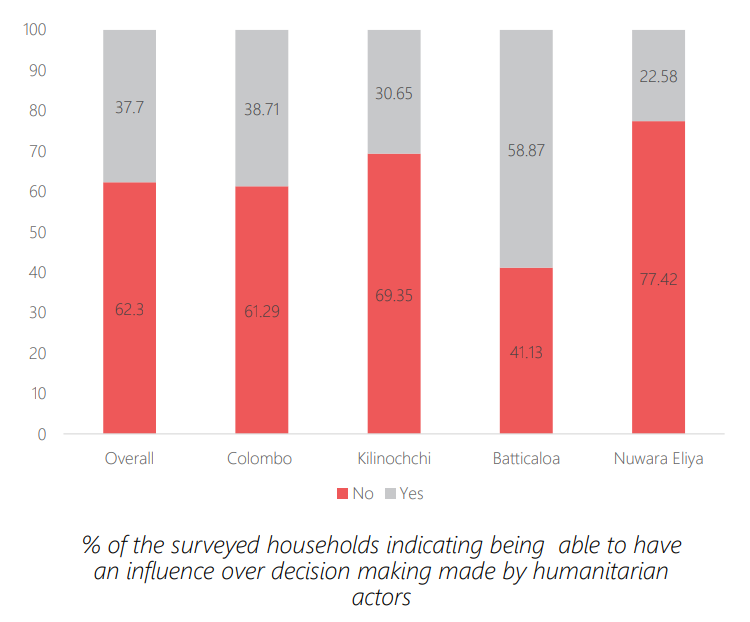 In fact, surveyed households reported favouritism and that communitarian, religious or political differentiations had affected the impartial and efficient distribution of information regarding assistance, and thus the ability to seek assistance. As a result, more than half (53%) of all surveyed households reported that the aid did not go to those most in need. The consultations also underscore the importance of improved information dissemination and increased community inclusion and participation, given that more than half of the respondents were unaware of mechanisms to report issues or engage in decision-making regarding aid.
In fact, surveyed households reported favouritism and that communitarian, religious or political differentiations had affected the impartial and efficient distribution of information regarding assistance, and thus the ability to seek assistance. As a result, more than half (53%) of all surveyed households reported that the aid did not go to those most in need. The consultations also underscore the importance of improved information dissemination and increased community inclusion and participation, given that more than half of the respondents were unaware of mechanisms to report issues or engage in decision-making regarding aid.
These findings highlight the crucial need for aid actors to incorporate the views and perceptions of affected people into future planning and response in Sri Lanka.
Read the full factsheet and presentation.
08/09/2023 – Global – AAP Cross-crisis analysis – Key Messages
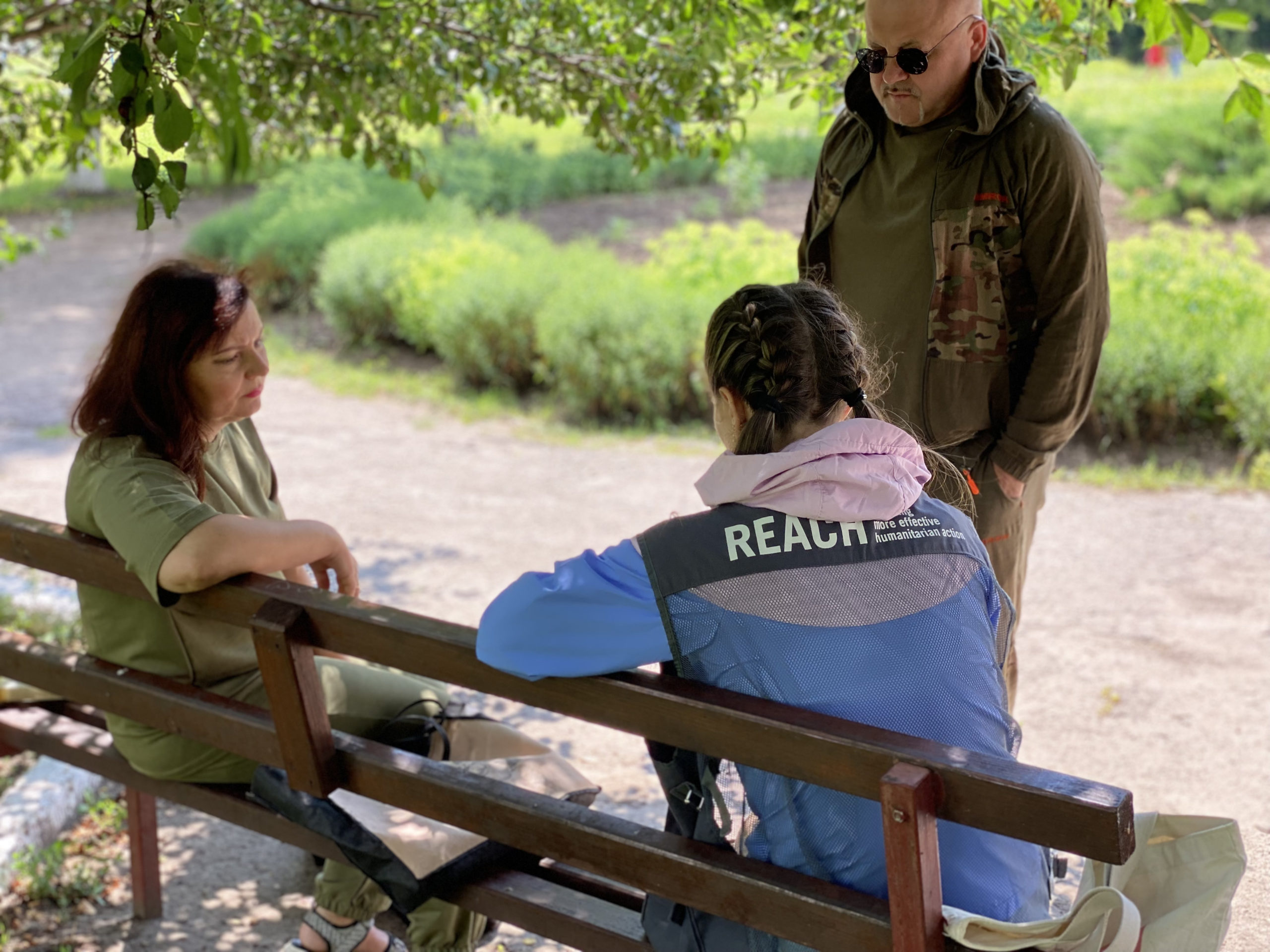
2023 MSNA Data Collection – Ukraine
Every year, REACH’s Multi Sector Needs Assessments (MSNAs) include several indicators that help to identify trends associated with Accountability to Affected People, including community satisfaction with humanitarian assistance, barriers faced when accessing assistance, and communication needs and preferences.
These themes are complex and can hardly be reduced to simple graphs. Nevertheless, the responses provided by tens of thousands of households to questions associated with AAP can be a good starting point for a broader analysis of priority issues and course corrections – one that should ideally be complemented by in-depth qualitative explorations and local insights at country level. To enable such explorations, we have gathered the core findings from 14 MSNAs in 2022 into a single cross-cutting analysis.
Looking at these results, several points become obvious:
1. Funding matters
Satisfaction with assistance is often highest in responses that are financially well-resourced relative to needs, and lowest in so-called “forgotten” crises facing significant funding gaps. While unsurprising, this serves as a reminder that being accountable to affected people starts with ensuring that funding accurately matches need and, where this is not possible, ensuring that we prioritize limited resources to those most in need. Poorly resourced humanitarian responses lack the flexibility to engage communities in decision-making processes, and to provide quality assistance at a scale that meets needs and expectations.
2. The humanitarian system is unnecessarily hard to navigate
Year after year, and across most countries covered in MSNAs, the primary barrier to accessing humanitarian assistance is simply a lack of information about the assistance that is available. The system tends to respond to this problem by multiplying the channels to communicate with communities, but perhaps there is a deeper problem to resolve in terms of the information that aid actors are truly willing or able to share with aid recipients.
As is it currently set up, the humanitarian system is not designed to enable communities to proactively seek the assistance that they need, for example through systematic and transparent information sharing about the assistance that is available in a given area, the time, date and modalities of registration or distributions, or targeting criteria. This forces people in crises into a passive role whereby there is often little to do but to wait to be ‘targeted’ by humanitarian actors. Communicating better with communities is perhaps first and foremost a question of transparency; therefore moving away from top-down control of information is an integral part of a more accountable humanitarian system. 3. Face-to-face engagement makes a difference
3. Face-to-face engagement makes a difference
For all the promises of digital applications in terms of increasing the scale and scope of engagement between people in emergencies and service providers, it is worth noting that across several countries globally, survey respondents still report preferring to communicate with humanitarian actors directly, ideally face-to-face, to seek information about assistance or to provide feedback. While key opportunities exist for leveraging digital technology to deepen engagement with communities, we should keep in mind that in the midst of an emergency situation, being able to speak face-to-face with an aid worker locally can be a lifeline – one in which we should continue to invest.
Read the full brief detailing AAP findings from the global cross-crisis analysis of 2022 MSNA data.
04/09/2023 – Ukraine – Leveraging needs assessment data to understand the gender impact of humanitarian crises: The example of Ukraine.
Since 2016, the platform Convergences has published the “Sustainable Solutions Barometer”, which aims to mobilise all stakeholders in favour of the Sustainable Development Goals (SDGs) and to highlight concrete solutions for a more equitable and sustainable world. Produced in partnership with the 1Planet4All project, the Barometer’s mission is to report each year on the efforts being made around the world to achieve a world of Zero Exclusion, Zero Carbon and Zero Poverty. IMPACT contributed to its 6th edition, focused on the fifth SDG on Gender Equality, with an article entitled “Mobilising assessment data to understand the impacts of humanitarian crises depending on gender – the example of Ukraine”.
Humanitarian crises tend to exacerbate pre-existing inequalities within a society, due to the pressure they exert on communities, access to resources, and the respect of fundamental rights. It is thus crucial to consider the impacts of these crises on men, women, and gender minorities. However, with the urgency of the situation and the need for effectiveness in mind, actors tend to favor actions that will benefit the greatest number of affected people, without investigating further the gender-specific impacts of the crisis. This is not to say that gender is absent from collective efforts towards an appropriate distribution of assistance, but the ways gender dynamics are integrated into programming are often based on generic analysis and blanket assumptions rather than a contextualised evidence base.
Humanitarian data collection proves to be necessary to move towards a fair and appropriate distribution of aid. Disaggregating data according to age and gender at an individual level, or according to household demographic composition, helps to produce an overview of the specific impacts of the crisis on these different groups.
After the invasion on Ukraine in February 2022, through our flagship initiative REACH, showed an alignment in household priorities around food and health needs, the differences are tangible in the severity of needs measured. 46% of female-headed households were found to have extreme or very extreme needs in at least one of the sectors of intervention, compared to 38% of male-headed households. This could be explained by different access to livelihoods, persisting discrimination when seeking to access employment, or the wage gap between men and women – existing prior to the war – but could also be correlated with dynamic factors linked to the crisis.
Based on the MSNA, and with the Gender in Humanitarian Action Working Group in Ukraine, the REACH team also collaborated with other humanitarian actors to formulate recommendations tailored to needs resulting from the intersection of different vulnerabilities. For example, while female-headed households aged between 18 and 59 would benefit from support in developing livelihoods and accessing employment, cash assistance appears to be more adapted for households headed by women aged 60 and over.
Quantitative data is indeed essential in supporting the consideration of gender in the humanitarian response, but it is also crucial to identify grey areas persisting beyond statistics. Needs assessments tend to focus on the impacts of an immediate shock, whereas gender inequalities are the results of normative, institutional, and social processes that are harder to quantify.
| “To address these more complex problematics, quantitative assessments need to be completed by contextualised analyses, more targeted research, and a close collaboration with actors from civil society – to promote an inclusive humanitarian response that considers gender dynamics.” – Cosima Cloquet, IMPACT Gender & Inclusion Assessment Specialist. |
Read the full article here, starting on page 11.
IMPACT will be at the 15th edition of the 3Zero World forum in Paris on 5 September – come visit our booth if you have any questions.
19/08/2023 – Burkina Faso – Piloting an accountability monitoring tool in Burkina Faso
With the aim of strengthening the participation of crisis-affected communities in humanitarian decision-making processes and programming in Burkina Faso, IMPACT – through its flagship initiative REACH – worked with partners to pilot an accountability monitoring tool in the city of Fada N’Gourma.
As said by Jean Valéa, Humanitarian Affairs Officer for UN OCHA and one of the key project’s partners, “You can’t serve people that you’re not listening to”. For Accountability to Affected People (AAP), it’s crucial to assess how humanitarian organisations report back to affected communities and how their observations and feedback are taken into account – to allow the review and adaptation of aid actions if needed.
Overall, this is exactly what the project aimed for: to develop a tool that effectively increased community engagement in designing humanitarian assistance, assessed how aid is received and perceived, and reviewed existing complaint and feedback mechanisms.
For this project, developed in partnership with Fonds Humanitaire Régional pour l’Afrique de l’Ouest et du Centre (FHRAOC) and OCHA, household surveys, focus group discussions, and Key Informant (KI) interviews were conducted from January to February 2023. These tools were developed through consulting the local Community Engagement and Accountability Working Group (CEAWG), with whom the results from the pilot study were also jointly analysed. The last step of this project was to train local humanitarian partners from the CEAWG on how to use these pilot tools, with the objective of sustaining the monitoring mechanism over the longer term.
In addition to building the capacity of local actors, the REACH team wanted to broadcast to the local population and other interested actors about the importance of promoting accountability in humanitarian action, which was done through a radio talk show and a documentary. We partnered with the local radio station Tin Tua to broadcast a discussion with the REACH Field Officer in charge of the data collection, as well as local representatives in the local language Gourmantche.
A local film company, Fama Film, also created a documentary presenting the different stages of the project, from data collection in communities, to communication of results through the radio talk show, to the trainings held for partners. The documentary also highlights relevant stakeholders’ views on the advantages of the accountability mechanism and what this project means for the humanitarian community.
Key takeaways from the project
The evaluation revealed a difference in perception between households and humanitarian actors on several key points about accountability and community engagement.
For example, the study found a strong perception among respondents that humanitarian assistance was denied to many with self-reported needs: although most of the humanitarian actors interviewed as KIs did not report the existence of barriers to accessing assistance, 65% of households indicated exclusion from targeting as the main barrier to accessing assistance for at least one of their priority needs. Similarly, while KIs felt that satisfaction with assistance was high, 41% of households who had received assistance reported they were not satisfied with the quantity of aid they received.
Regarding two-way communication, although humanitarian actors had reportedly assured communities that they would be consulted, only 28% of households reported actually having been consulted in the six months prior to being interviewed. Similarly, it was found that only a third of surveyed households reported being aware of complaint mechanisms.
The study also touched on more sensitive topics such as beneficiary selection criteria and fraud, or other cases of mishandling by humanitarian agents. Enumerators who led these discussions, mostly through focus groups, were carefully trained and sensitized to issues such as Preventing Sexual Exploitation and Abuse (PSEA). While focus group participants revealed a certain degree of compliance with exchanging money for aid in three quarters of the groups, they also advocated for the need to combat fraud by enforcing a stricter code of conduct among aid workers and raising awareness among vulnerable populations.
Next steps
Following the project, IMPACT will continue to support our partners within the CEAWG in replicating the evaluation in the other regions they work in. By doing so, they can reinforce their engagement with the communities they serve and ensure that they are actively measuring their actions against their own accountability commitments. IMPACT will reflect on how the project’s learnings could potentially be applied and scaled up outside of Burkina Faso.

